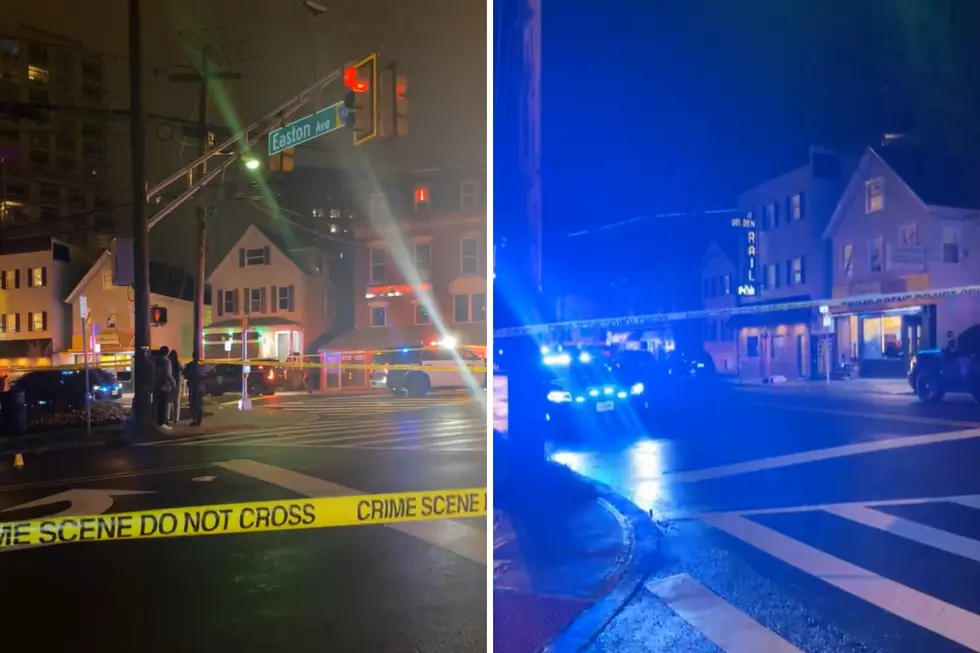
Rutgers had to strike ‘delicate balance’ over swastika on student’s ceiling, professor says
Rutgers University had a "difficult and delicate" balance to walk when dealing with a swastika left on the ceiling of a student apartment, according to a professor who teaches about hate crimes.
Rutgers University senior Sara Rosen said she came home to her on-campus apartment in New Brunswick last month to find a swastika made of duct tape on the ceiling, left there by a roommate. She reported the incident to the Rutgers University Police, who investigated and notified the Middlesex County Prosecutor's Office.
No one was charged in connection with the symbol, Rosen said.
"Upon review, the prosecutor's office determined there was not probable cause to charge the suspect with a bias crime," Rutgers spokesman Jeff Tolvin said in a statement sent to New Jersey 101.5.
In an excerpt from the police report provided by Rosen to New Jersey 101.5, a responding officer recounts being told by one roommate, named John, "That’s not a swastika. It’s a Buddhist peace symbol."
Another roommate, named Sam, reportedly said “Yeah, it’s a Buddhist symbol for peace, oriented in the opposite direction of a swastika. Jon put it up last night and I told him he should probably write ‘peace’ next to it or something so there would be no confusion.”
Police said in the excerpt of the report that Jon confirmed he put the symbol up, and Sam said there was "no particular reason or motivation.”
Rutgers Police would not provide a copy of the report to New Jersey 101.5, citing federal privacy laws.
Dr. Jim Castagnera, associate provost and legal counsel for academic affairs at Rider University, said Rutgers found itself in a tough spot over this incident.
"We in higher education across the board tend to give very high value to academic freedom," he said, adding Rutgers as a public institution is under even more scrutiny when it comes to the First and 14th Amendment issues. The First Amendment makes guarantees of freedom of expression, and the 14th guarantees due process and equal protection under the law.
Castagnera said the school has to consider if by forcing the swastika to be removed it would be violating a student's right to free speech.
"On the other hand, I am sure Rutgers, like Rider, has rules and regulations against harassment. Additionally, there are state laws dealing with bias intimidation and a statute for a crime of harassment," Castagnera
Rosen isn't buying the Buddhist explanation.
"Tough colleges need to make tough decisions," she said. "I felt this was a very clear example of an attempt of intimidation, bullying and harassment and Rutgers just stood idly by. I'm hopeful Rutgers will come forward and make a stand to condemn these woeful actions of intimidation and condemn the use of religious symbols as weaponry.
"Based on everything else that's happened, if I can be blunt, are you going to pee on my foot and tell me it's raining?"
Castagnera said there is no question that the swastika is used worldwide: "You can find it in a byzantine Christian church, Ethiopian Christian church, in Japan from the days of the Ronans and Samuari it was a crest. With little dots added between the lines it becomes a Hindu symbol."
"It can be many things to many people" no matter how it is displayed, he said.
Castagnera noted that in Sanskrit the symbol's name is spelled "svastika" and is considered a positive symbol..
Rosen said the ancient symbol it is usually drawn with vermillion powder sacred ash.
"To put it on someone's ceiling with duct tape that just doesn't cut it," she said. No self respecting Buddhist would do that, is what they told me."
Rutgers said it responded immediately to Rosen's 911 call and conducted an "extensive investigation, which included several interviews with the complainant, witnesses and the suspects." The incident was also handled by Rutgers Office of Student Conduct and adjudicated, the school said.
Rutgers said Residence Life offers alternative housing in cases where students have immediate safety concerns. However, the student may decline that offer and keep their residence.
Rosen, a psychology major whose family members have all attended Rutgers, said to her the intent was "extremely very clear cut." She said it, citing similar incidents at Rowan University, East Carolina University and George Washington University, it didn't matter if it was drawn "left, right, up, down" the incidents were dealt with in a "rapid and firm manner."
The New Jersey chapter of the Anti-Defamation League this week said Rutgers must "make clear that such incidents have no place on its campus."
“Schools must provide safe environments which facilitate learning and understanding among students from diverse backgrounds,” Joshua Cohen, ADL New Jersey Regional Director, said in a statement from the organization. “Incidents like the one at Ms. Rosen’s residence hall not only need to be investigated expeditiously and the findings communicated to the campus community, but the University should also take the important step of making a strong public statement condemning this incident."
More From New Jersey 101.5 FM









